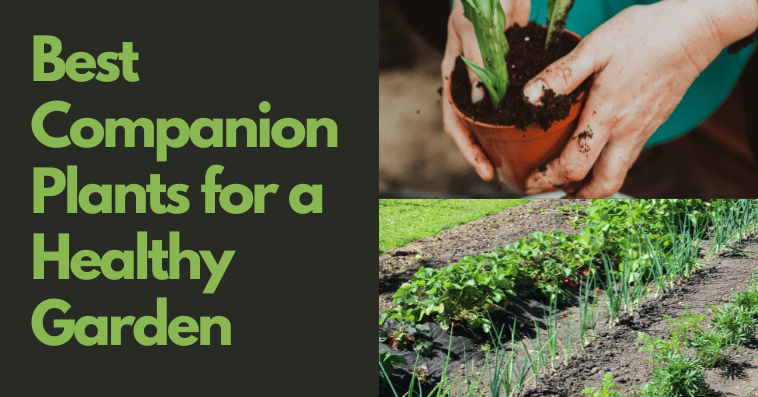If you want a thriving garden that’s naturally resistant to pests, promotes growth, and requires less maintenance, there’s one secret you need to know: companion planting.
Companion planting is the age-old gardening method of pairing specific plants together to help each other grow better. From deterring harmful pests and attracting beneficial insects to improving soil health and boosting flavor, choosing the right plant combinations can completely transform the way your garden looks and produces.
In this blog, we'll explore the best companion plants for vegetables, herbs, and flowers that you can easily grow in your garden (even in containers). Plus, at the end, discover where you can buy the perfect plant combos online from PaudheWale, India’s go-to destination for gardening enthusiasts.
What Is Companion Planting?
Companion planting is the practice of growing different plants close together because they benefit each other in some way by:
-
Repelling pests
-
Attracting pollinators
-
Fixing nitrogen in the soil
-
Providing shade or support
-
Enhancing flavor or growth
It’s like building a community in your garden where each plant plays a specific role.
1. Tomatoes + Basil
One of the most famous garden duos!
-
Basil repels aphids, whiteflies, and hornworms that commonly attack tomatoes.
-
It also enhances tomato flavor and improves growth.
-
Plus, it’s a delicious combo for your kitchen.
Tip: Keep the basil trimmed to avoid shading out the tomato.
2. Cucumbers + Nasturtiums
Cucumbers attract pests like aphids and cucumber beetles—but nasturtiums come to the rescue.
-
Nasturtiums act as a trap crop, attracting pests away from cucumbers.
-
Their bright flowers also attract pollinators.
-
Both are space-saving plants, ideal for small gardens.
3. Spinach + Radish
These make great neighbors in containers or raised beds.
-
Radishes break up the soil, helping spinach roots to grow deeper.
-
Radishes mature quickly, giving space to spinach later.
-
Both grow well in partial sun and cooler climates.
Pro Tip: Sow together for an easy, productive combo!
4. Corn + Beans + Pumpkin (The “Three Sisters”)
This ancient Native American trio is a classic example of symbiotic growing.
-
Corn provides support for bean vines.
-
Beans fix nitrogen in the soil, feeding all three.
-
Pumpkins act as a natural mulch, retaining soil moisture and preventing weeds.
Perfect for large terrace gardens or backyard spaces!
5. Roses + Garlic
This ornamental-edible pair not only looks stunning but also keeps pests at bay.
-
Garlic repels aphids, mites, and beetles that damage roses.
-
Plant garlic cloves around your rose bushes for a natural defense system.
-
Adds fragrance and function to your flower bed.
6. Carrots + Onions
Both are root crops, but they help each other in unique ways.
-
Onions repel carrot flies while carrots help deter onion maggots.
-
Both grow well together without competing for nutrients.
-
Grow in deep, loose soil for the best results.
This is a winning pair for container gardens too.
7. Lettuce + Marigolds
Lettuce is vulnerable to aphids and slugs, but marigolds act as natural insect repellents.
-
Marigolds also attract beneficial insects like ladybugs and hoverflies.
-
Lettuce enjoys the partial shade from taller marigolds.
-
This combo creates a beautiful, edible border.
8. Tomato + Carrot + Onion (Garden Trios)
Another smart trio for small-space gardening.
-
Tomatoes benefit from onion’s pest-repelling properties.
-
Carrots enjoy growing in the shade of taller tomato plants.
-
This trio works well in raised beds or large containers.
9. Peas + Mint
Peas are nitrogen-fixers, and mint is a strong pest deterrent.
-
Mint repels aphids, ants, and flea beetles.
-
Peas enrich the soil with nitrogen, improving overall plant health.
-
Be cautious—mint spreads aggressively. Grow it in pots nearby.
10. Potatoes + Beans
This combination works great for boosting soil nutrients and maximizing space.
-
Beans add nitrogen, helping potatoes grow better.
-
Beans also deter the Colorado potato beetle.
-
Avoid pairing potatoes with tomatoes or eggplants, as they compete and attract common pests.
🌸 Bonus: Herbs as Companion Plants
Herbs are powerful companions due to their strong scent and pest-repelling properties.
Top companion herbs:
-
Coriander (Dhaniya): Repels spider mites and aphids
-
Dill: Attracts ladybugs, which eat pests
-
Chives: Prevent fungal diseases in tomatoes
-
Lemongrass: Repels mosquitoes and garden bugs
-
Rosemary: Excellent next to cabbage and beans
❌ Plants That Shouldn't Be Planted Together
Not all plants get along. Avoid these bad companions:
-
Tomatoes + Potatoes: Compete and share diseases
-
Cabbage + Strawberries: Cabbage repels bees needed for strawberry pollination
-
Carrots + Dill: Dill can stunt carrot growth
-
Onions + Beans: Onions can inhibit bean growth
Understanding what not to pair is just as important as knowing the right companions.
Tips for Successful Companion Planting
-
Group plants by sunlight and water needs
-
Use raised beds or containers to separate incompatible plants
-
Rotate crops every season to avoid nutrient depletion
-
Keep a garden journal to track your results and pairings
👩🌾 Remember: A diverse garden is a healthy garden!
Ready to Create Your Companion Garden? Shop from PaudheWale!
Whether you’re starting your first kitchen garden or upgrading your terrace space, PaudheWale has everything you need to begin companion planting the smart way:
-
Vegetable plant combos
-
Herb kits and grow bags
-
Flowering plants and pest-repelling greens
-
Organic compost and potting mix
🌿 Visit PaudheWale to shop the best companion plant pairs, garden tools, and care essentials delivered straight to your doorstep—across India.
Why Gardeners Trust PaudheWale:
-
Healthy, ready-to-grow plants with high survival rate
-
Expert support and plant care guidance
-
Eco-conscious packaging & fast shipping
-
Affordable combos curated for urban spaces
🌱 Build a garden that grows together and thrives together — only with PaudheWale.
